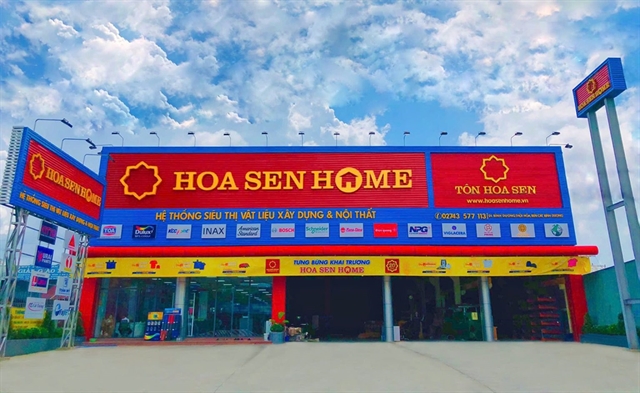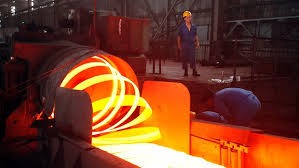 Economy
Economy

The local steel sector saw a high growth rate in the first nine months of the year, despite difficulties, said Việt Nam Steel Association (VSA).
 |
| Steel consumption in the first nine months of the year rose by 20.5 per cent from the same period last year. — Photo vsteel.vn |
HÀ NỘI — The local steel sector saw a high growth rate in the first nine months of the year, despite difficulties, said Việt Nam Steel Association (VSA).
Association data showed that from January to September, steel output was 15.4 million tonnes, posting a 24.2 per cent year-on-year increase. Steel consumption also rose by 20.5 per cent from the same period last year.
The steel output in September alone reached 836,624 tonnes, increasing 19 per cent from the corresponding period last year and 18 per cent from the previous month.
The steel consumption last month dropped 6.5 per cent from the previous month to 740,565 tonnes, but represented a 16.5 per cent year-on-year rise. Therefore, steel inventories in September rose 28 per cent from the previous month to 579,342 tonnes.
Prices of steel billet for production fluctuated at US$525-530 per tonne, reducing $15 per cent from the beginning of last month. In the third quarter of the year, the steel billet price rose $90 per tonne in comparison with the second quarter.
However, the construction steel price did not increase, remaining stable at VNĐ12.5 million per tonne in the north and VNĐ13.5 million per tonne in the south.
The average capacity of the domestic steel sector has been at 70 per cent to avoid high inventory.
Vietnamese steel producers are still facing pressure from imported steel. In the first eight months of the year, imported steel reached 13.5 million tonnes worth some $7 billion, reducing 22 per cent in terms of quantity but reporting a 3.8 per cent increase in terms of value, in comparison with the same period last year.
The decreasing import amount was mostly seen at cold rolled steel coil, as Formosa Hà Tĩnh Steel Plant has been able to produce the steel.
In addition, the trade defence measures on some steel products of coated steel, alloyed steel and steel bar have helped reduce imports.
Producers of construction steel and others are still facing fierce competition from imported products to maintain their market shares.
Local steel producers, therefore, need to keep a close control on the quality of imported steel to make the market healthy.
Many domestic steel producers have been actively investing in modern technologies and expanding markets to improve their products’ quality to attract foreign customers. — VNS